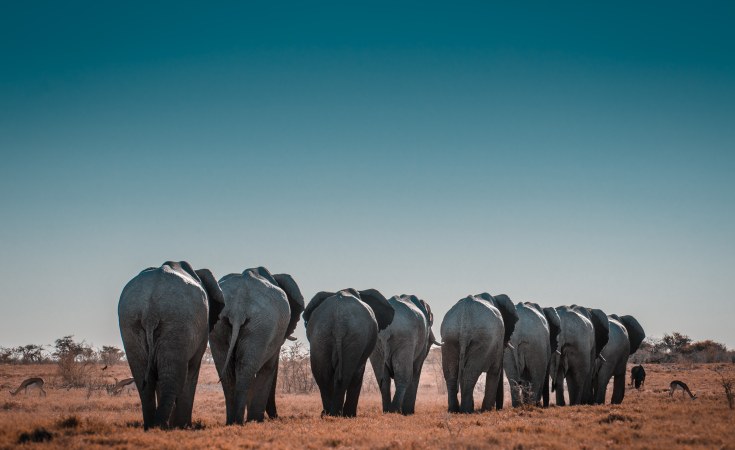Gaborone, Botswana — Some Southern African countries pushing against the United Kingdom's anti-hunting efforts suffered a blow when the Labor Party, expected to form the next government, committed last week to support a ban on hunting trophy imports.
Angola, Botswana, Namibia, South Africa, Zambia and Zimbabwe said in a joint statement that they are disappointed Britain's Labor Party will attempt to ban hunting trophies.
The countries said, however, that unlike the Conservative government, the Labor Party has "at least pledged a full consultation on a policy with significant ramifications for conservation programs in our countries."
Botswana, with the largest elephant herd in the world at more than 130,000, has been at the forefront of a campaign against efforts by the U.K. and other European nations to ban hunting trophies from Africa.
Adam Hart, a U.K.-based ecologist and conservation scientist specializing in southern Africa, told VOA he is disappointed with the Labor Party's move.
"It shows that perhaps they have not listened to the sides that have gone in front of the Conservative Party, and they have not listened to the voices of the affected nations," he said.
In its manifesto, the Labor Party says it will put forward a comprehensive plan to end animal cruelty that includes a ban on the import of hunting trophies from abroad.
"I think politicians see this as an easy win," said Hart, who is a professor at the University of Gloucestershire. "It's only when they start getting involved more with the issues that they realize that it is nowhere near as straightforward as they thought."
He said the Labor Party must be honest in its consultation with the affected southern African countries.
"We have to give [the Labor Party] the benefit of the doubt and suggest that perhaps the consultation will be genuine," he said. "Many people when they go into this debate think that they have the answers. They think that it's a very ... simple issue, that banning hunting trophies will save endangered species.
"Of course, once you start digging into the issue, you realize it's much more complicated than that and that, in fact, it can have the opposite effect."
Countries such as Botswana and Zimbabwe are pursuing alternative markets.
Botswana's permanent secretary in the Ministry of Environment and Tourism, Boatametse Modukanele, said, "We are looking at the Middle East. We are also looking at the United Arab Emirates, as an example. We are looking at those countries because they also have a hunting culture, and they do not have the many restrictions that we have currently."


